Schedule
2022 Lineup
-
Registration of ESG NXT 2022
- 0830 - 0930
THEME: ESG INTO STRATEGY & LEADERSHIP
-
Opening Remarks by Chairperson, ESG NXT 2022
- 0930 - 0940
-
Integrating ESG-Related Risks & Opportunities in The Strategy and Operations
- 0940 - 1010
Environmental, social and governance (ESG) related risks have become prevalent risks worldwide and in the Asia-Pacific region. It is crucial that business learn to navigate and thrive within these changing landscapes and integrate and include ESG considerations into strategy formulation and operations management.
Speakers
-
Welcome Remarks by Organising Chairman, ESG NXT 2022
- 1010 - 1020
Speakers
-
ESG Expertise: Raising The Bar for Boards
- 1020 - 1050
The global ESG landscape is swiftly changing and this requires business leaders to be adept at business sustainability, ESG risks and opportunities. Board directors need to develop a better understanding of their fiduciary duties and litigation risks in line with new sustainability regulations.
Speakers
-
Morning Refreshments & Exhibition Hall Browsing
- 1050 - 1120
-
Opening Keynote: Pathway To Decarbonization – Tackling Scope 3 Emissions
- 1120 - 1135
Speakers
-
Strengthening Human Rights Policy and Practice
- 1135 - 1210
Amidst a global pandemic, it is becoming vital for companies to enhance sustainable practices in response to escalating global demand for corporate responsibility. Responsible business conduct is important, especially when it comes to mitigating risks and avoiding complicity in human rights violations and non-compliance.
Speakers
- Nurul Hasanah Ahamed Hassain MalimHead of Group Sustainability, FGV Holdings Berhad, Malaysia
- Professor Dato’ Dr Aishah Bidin FAScMalaysian Representative to the ASEAN Intergovernmental Commission of Human Rights (AICHR)
- Victor BernardProgramme Officer, Raoul Wallenberg Institute of Human Rights and Humanitarian Law, Thailand
-
Networking Luncheon & Exhibition Hall Browsing
- 1210 - 1330
-
- 1330 - 1415

TRACK 1:
BUILT ENVIRONMENT, TRANSPORT & MOBILITYAround 2.5 billion more people will be living in cities by 2050. Along with climate change and other challenges, to ensure the quality of life, we are in dire need of more sustainable and resilient urban planning. This track explores how industries can contribute to the system transformations needed for more sustainable living spaces.
Strengthening Public-Private Dialogues for Low Carbon Development Opportunities in Malaysia
In the process of mainstreaming low carbon development, the urban planning, construction, transport and technology industries all have roles to play. Public-private partnerships are especially important and actors from both sectors are required to collaborate to unlock more low-carbon development opportunities in Malaysia.
Speakers:

TPr. Ts. Norliza Hashim
Chief Executive, Urbanice Malaysia

Evelyn Teh
Executive Director Ara Research Malaysia
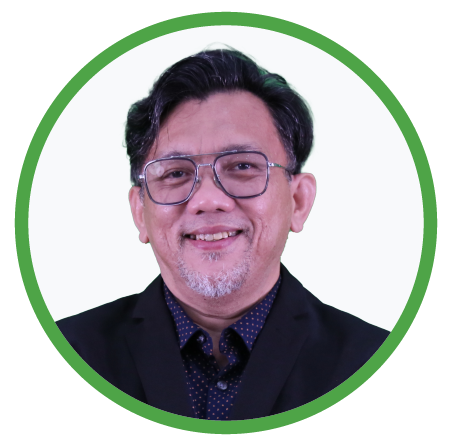
Mahalil Amin Abdul Malek
Vice President, Malaysian Industry-Government Group for High Technology (MIGHT), Malaysia

Track 2:
ENERGY & DECARBONIZATION PATHWAYIn the coming decades, the energy sector will undergo a complete metamorphosis. Energy efficiency needs to improve exponentially across all sectors including transport, buildings, and industries. This track discusses a range of diverse solutions for different actors to pursue, to accelerate their decarbonization journey.
Investing in the low-carbon transition: Low-Carbon Pathways for Growth and Sustainability
The energy sector is the center of the low-carbon transition. The urgency of advancing the transition offers new opportunities for energy users to rethink how they source and consume low-carbon energy, and collaborate with stakeholders across their value chain to benefit from new technologies, business models and financing mechanisms.
Speakers:

Charlotte Wolff-Bye
Research Fellow
Vice President & Chief Sustainability Officer, Petroliam Nasional Berhad, Malaysia
Cheryl Rita Kaur
Research Fellow
Centre for Straits of Malacca, Maritime Institute of Malaysia (MIMA), Malaysia
Indah Budiani
Executive Director, Indonesia
Business Council for Sustainable Development (IBCSD), Indonesia
Dr. Renard Siew
Head of Corporate Sustainability
Yinson Holdings Berhad, Malaysia -
- 1415 - 1500
Track 1:
Net-Zero Carbon Future for Our Built EnvironmentCities can lead the transition to a low carbon and climate-resilient economy. For instance, business and policymakers could explore self-sufficient cities, implement green infrastructure, and follow the science-based targets to reduce the whole-life carbon footprint of built structures, toward net-zero emissions.

Sofia Castello
Director – Climate & Environmental Resilience, Think City Sdn Bhd, Malaysia

TPr. Chau Loon Wai
Co-Director, UTM-Low Carbon Asia Research Centre, Universiti Teknologi Malaysia

Mitch Gelber
CEO, Malaysia Green Building Council (malaysiaGBC), Green Building Index Technical Committee, Malaysia
Track 2:
Energy and decarbonization pathwayIn line with the growing awareness of climate action, voluntary carbon markets will play an important role to support financing for projects and solutions that reduce, remove or avoid greenhouse gas emissions. This session
aims to provide more insights on the Voluntary Carbon Market (“VCM”) exchange that will be launched by Bursa Malaysia later this year.
Dr. Wei-nee Chen
Executive VP & Head of Carbon Market, Bursa Malaysia Berhad, Malaysia
-
- 1500 - 1545
Track 1:
Net-zero buildings: Where do we stand?Global decarbonization trajectories indicate that the building industry needs to reduce annual GHG emissions by 50% by 2030 if it is to reach net-zero by mid-century. It is crucial for this sector to adopt a whole life-cycle approach to assessing the greenhouse gas (GHG) emissions from buildings to achieve the climate goals of the Paris Agreement.

Esther An
Chief Sustainability Officer City Developments Limited (CDL), Singapore

Dr Yasmin Rasyid
Sustainability Director, Lendlease, Malaysia

Goh Joon Sai
Associate, Arup, Malaysia
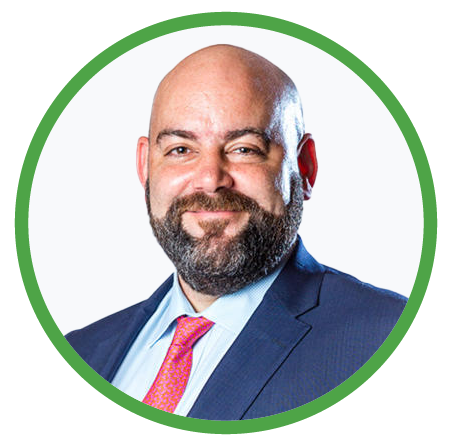
Joe Phelan
Executive Director Asia Pacific & Member Extended Leadership Group, Malaysia
Track 2:
Thinking big: Scaling up hydrogen for climate & business growthLow-carbon hydrogen will play a critical role in bringing hard-to-abate sectors to the forefront in the race to zero. It is important to accelerate the deployment of hydrogen with the lowest possible carbon intensity and create a global hydrogen market to achieve a decarbonized, secure and affordable future.
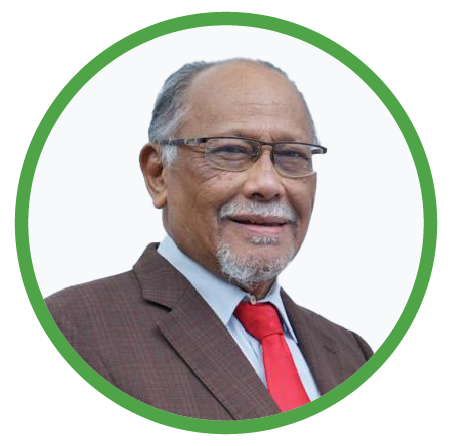
Prof. Dato’ Ir. Dr. Wan Ramli Wan Daud
Principal Research Fellow, University of Malaya, Founding President, Malaysian Association of Hydrogen Energy (MAHE), Malaysia

Dr. Rezal Khairi Ahmad
Chief Executive Officer, Nano
Malaysia
Wan Nadia Kamarudin
Technical Specialist, Malaysian
Green Technology and Climate Change Corporation, Malaysia
Roberto Benetello
Executive Director, Business Council for
Sustainable Development, Malaysia -
Evening Refreshments & Exhibition Hall Browsing
- 1545 - 1615
-
- 1615 - 1700
Track 1:
Decarbonizing Transportation and MobilityInternal combustion engines are a huge contributors to global CO2 emissions. Creating sustainable transportation solutions is one of the greatest challenges facing cities today but also a great opportunity for the development of low-carbon cities.

Joe Phelan
Executive Director Asia Pacific, World Business Council for Sustainable Development, Singapore

Ts. Tan Hong Tat
Head of Sustainability AEON Group Malaysia
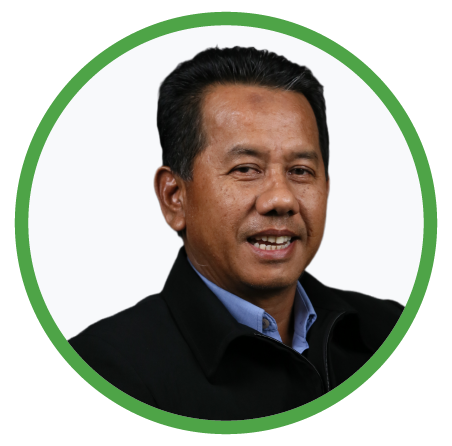
Ts. Zulkifflee Mohamad
Senior Principal Analyst I,
Malaysian Industry-Government Group for High Technology, Malaysia
Ts. Dr. Siti Zaharah Ishak
Deputy Director, Industrial
Linkages & Commercialisation Malaysia Institute of Transport, Universiti Teknologi MARA, MalaysiaTrack 2:
Advancing The Clean Energy TransitionIn order to achieve net-zero carbon energy, zero-carbon electricity generation technologies need to be further innovated and adopted globally at speed, with clean energy like solar, wind and geothermal expanding exponentially to make up more than 60% of electricity generation by 2050.
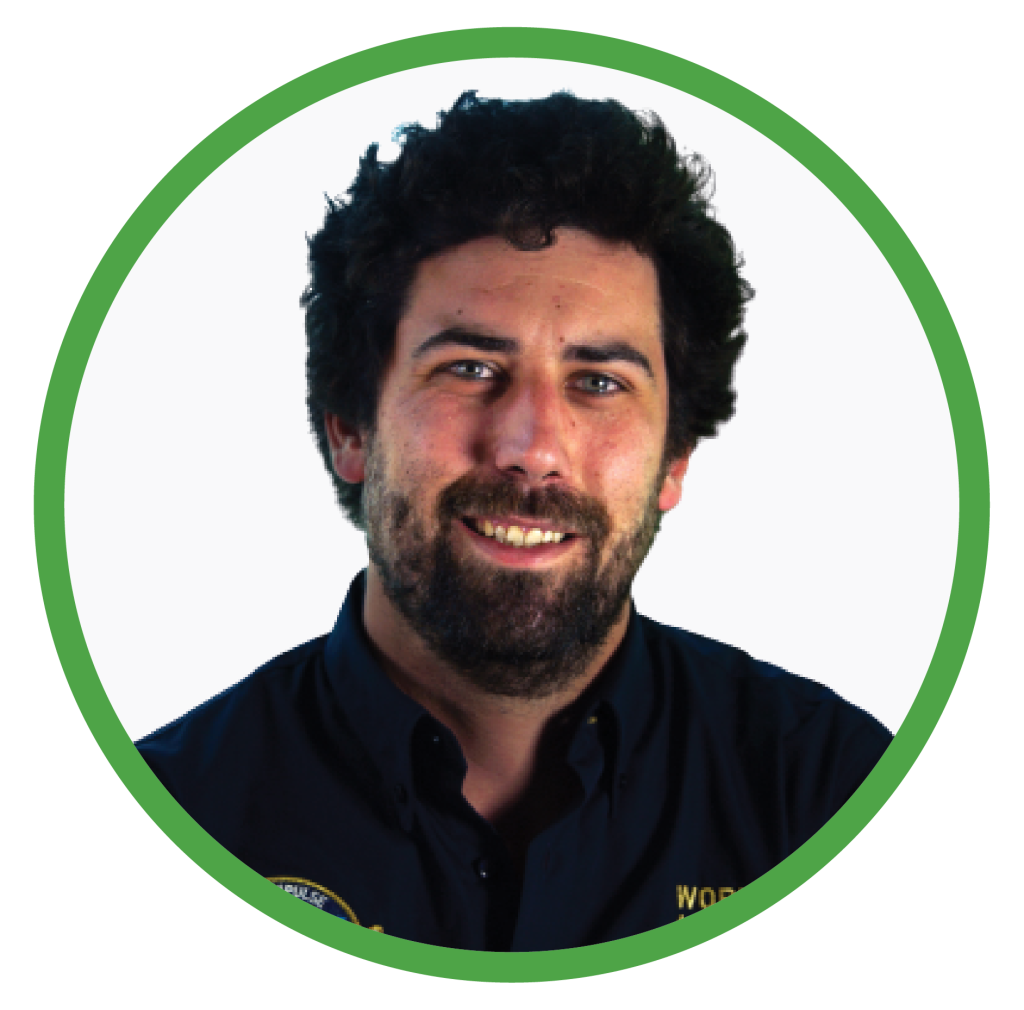
Jeremy Lovey
Vice President, Development & Partnerships Asia Pacific, Solar Impulse Foundation, Singapore

Dr. Renard Siew
Head of Corporate Sustainability,
Yinson Holdings Berhad, Malaysia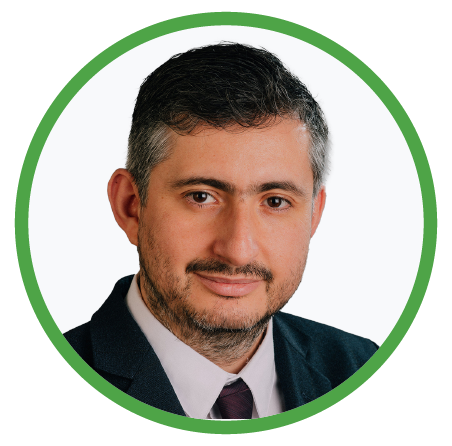
Mauricio Riveros
Associate Director, The Carbon Trust, United Kingdom

Chin Foong Ling
Consulting Director, Environmental Resources Management (M) Sdn Bhd, Malaysia
-
Getting Granular on Greenwashing
- 1700 - 1730
Collective global efforts toward greater sustainability have created the need for firms of all sizes to be more transparent about what they are doing to manage environmental, social, and governance risks. Management teams (particularly in publicly-traded companies) must now disclose comprehensive and truthful information keeping in mind that their target audiences are becoming more ESG knowledgeable .
Speakers
-
End of Day 1 – ESG NXT 2022
- 1730
-
Registration of ESG Next 2022
- 0900 - 1000
THEME: INVESTORS’ PERSPECTIVE ON ESG
-
Sustainable Investing: Channeling Investment to Good ESG Performers
- 1000 - 1030
Sustainable investing is about recognizing companies impacting positively the world’s sustainability challenges and making sure their investment needs are met. With reliable ESG insights, investors can make informed decisions on how best to allocate their funds. This is a powerful driver to the adoption of more sustainable practices by business.
Speakers
-
Morning Refreshments & Exhibition Hall Browsing
- 1030 - 1100
-
From Requirement to Action: Solving The Complexities of ESG Data
- 1100 - 1130
ESG data has never been more relevant than it is today. Despite the push for more disclosures, ESG data quality and coverage remain an issue. As a result, the assessment of a company’s ESG performance is often unreliable or it requires a lot of different metrics or perspectives to get the full picture.
Speakers
-
How Is the Sustainability Disclosure Landscape Being Simplified?
- 1130 - 1200
The sustainability reporting frameworks and processes need to consolidate and harmonise. This process is
well underway with the joining of forces between organizations such as CDP, the Climate Disclosure
Standards Board (CDSB), the Global Reporting Initiative (GRI), The International Integrated Reporting
Council (IIRC) and the Sustainability Accounting Standards Board (SASB). Sustainability disclosure is at the
top of the agenda for many, creating momentum towards simplifying the corporate reporting landscape.Speakers
-
Networking Luncheon & Exhibition Hall Browsing
- 1200 - 1330
-
- 1330 - 1415

TRACK 3:
FOOD & AGRICULTURE, HEALTH & WELLBEINGMore than half of the global economy depends on the prosperity of the natural world. From the water we drink, to the food we grow, and the resources we use in manufacturing, biodiversity and ecosystem services support our daily lives and many of our products and services. This track explores how food and agriculture industries can transform, in order to achieve a regenerative and equitable food system producing healthy, safe and nourishing food for all.
From Net Zero to Nature Positive: Embedding Nature into Business Practices
Understanding biodiversity and the impact of its rapid loss is crucial to curtailing further damage. Businesses have to embed nature recovery actions into business practices to limit the rapid degradation of nature and the loss of biodiversity and ecosystem services.

Katie Bonga
Manager, Redefining Value World Business Council for Sustainable Development, Singapore

Oliver Agoncillo
ACB’s Programme Specialist, ASEAN Centre for Biodiversity, Philippines

Aldo Joson
Deputy Head Sustainability
Operations & Compliance, April Group,
Singapore
Dr Wan Tarmeze Wan Ariffin
Director of Forest Products Division, FRIM
Forest Research Institute Malaysia (FRIM)
TRACK 4:
PRODUCTS & MATERIALSNow, more than ever, the opportunity to re-think and re-design the way we transform every element of our linear, ‘take-make-waste’ system is vast. It is a must for all sectors to discover efficient ways of handling the products and materials as we are moving towards mainstreaming sustainability practices. This track highlights a number of entry points for businesses to contribute to accelerating the circular transition.
Vision 2050 Products & Materials Pathway: We can make things, smarter
The Vision 2050 Products & Materials Pathway is that resource use is optimized to meet society’s needs while allowing the systems that provide resources to regenerate. To achieve this, circular business models have to become the norm and companies need to develop new business models to ensure product life cycles are extended for as long as possible.

Irene Martinetti
Circular Economy Manager, World
Business Council for Sustainable Development,
Switzerland
Matthias Gelber
Green Man Brand Ambassador
of AvantWood, Philippines -
- 1415 - 1500
Track 3:
Recognizing Nature’s ValueEcosystems constitute the abundance of natural capital that is needed to sustain communities and businesses. Failure to ascribe the right value to natural capital would misguide the policy and society would be worse off due to the misallocation of resources.

Adrian Choo
Executive Director, High Carbon
Stock Approach (HCSA), Malaysia
Nosrat Ravichandaran
Malaysia Project Lead,
Lestari Capital, Singapore/Malaysia
Katia Bonga
Manager, Redefining Value World
Business Council for Sustainable Development,
Singapore
Charmaine Chee
Forest Stewardship Council® (FSC®),
MalaysiaTrack 4:
The Linear Economy is dead! Circularity is vital for companies to reach climate, nature and equity goalsMoving away from the linear economy, the ‘take-make-waste’ practices, brings in opportunities for business owners to increase the company’s resiliency by creating new values for the company itself and its customers, and at the same time meeting the climate, nature and equity goals.

Machiel van Stralen
Deputy Head of Economic Section, Embassy of the Kingdom of the Netherlands, Netherland

Timothy Ong Wye Ern
Head of Circular BioEconomy Unit, Malaysian Investment Development Authority (MIDA), Malaysia
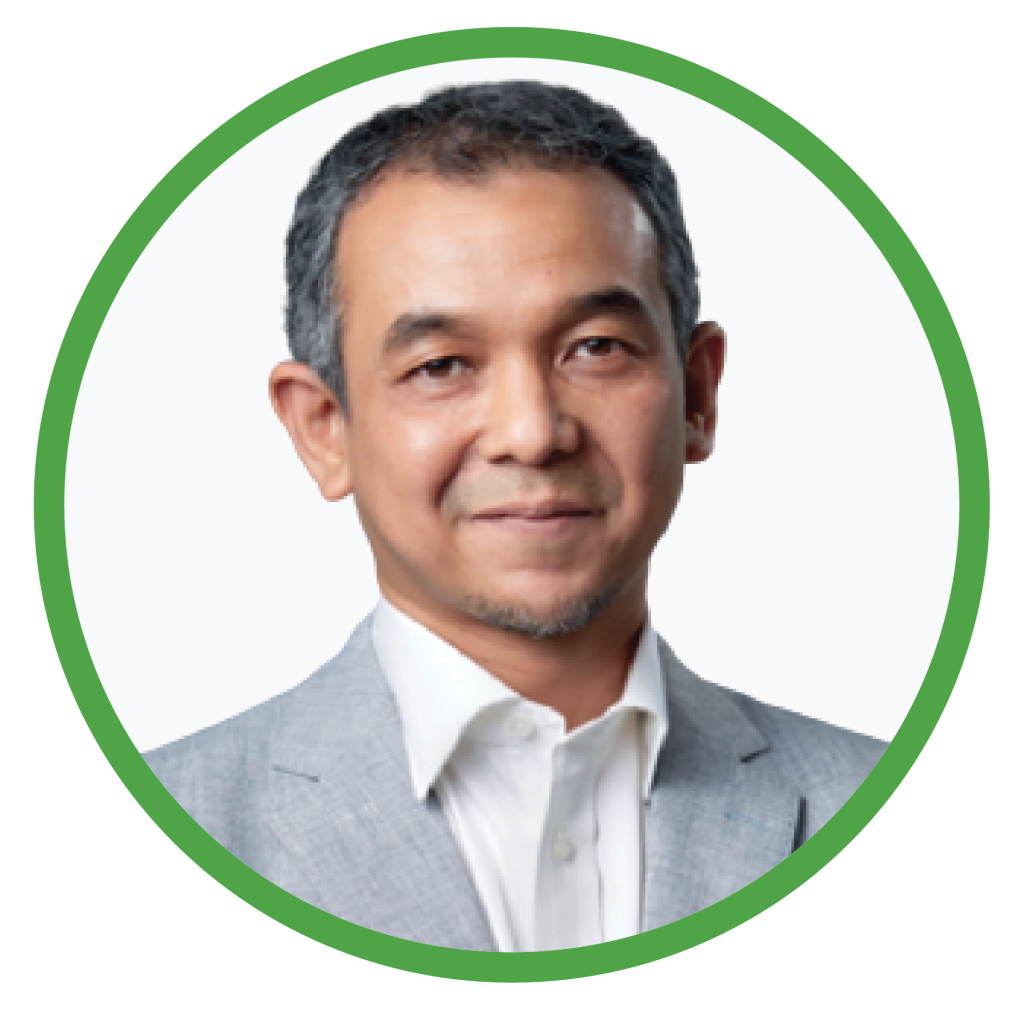
Dr. Hezri Adnan
Executive Director, Malaysian, Institute of Economic Research, Malaysia
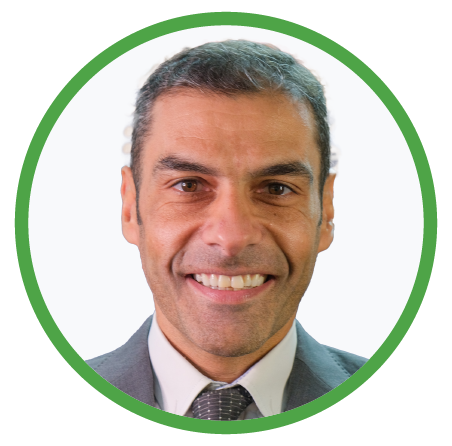
Francesco Floris
Trade Counsellor, Delegation of the European Union to Malaysia, European Union
-
- 1500 - 1515
Track 3:
Food Systems: Understanding Interconnectedness and ComplexityUnderstand the interconnectedness of climate change, natural resources, policy and socio-economic elements in the food systems, to unpack the complexity of food security issues.

Prof. Datin Paduka Dr. Fatimah Mohamed Arshad
Fellow
Laboratory of Agricultural and Food Policy Studies, Universiti Putra Malaysia
Senior Fellow, Institute for Democracy and Economic Affairs (IDEAS), MalaysiaTrack 4:
Embedding Sustainability into Supply ChainMore and more companies have pledged to work only with suppliers that adhere to social and environmental standards and aspire to create a cascade of sustainable practices that flow smoothly throughout the supply chain. Embedding sustainability in supply chain management allows us to reduce the environmental and social impacts of products throughout their life cycles.

Stefano Savi
Director, Global Platform for Sustainable Natural Rubber, Singapore

David Lantz
Director of Driving the Shift (more sustainable transport system), Scania Southeast Asia, Malaysia

Dr. S.Sri Umeswara
Executive Director, Dialog Eseco Sdn Bhd
Malaysia
Shanta Helena Dwarkasing
Director of Programs, UN Global Compact Network Malaysia & Brunei (UNGCMYB)
-
Agritech For Socio-economic Empowerment
- 1515 – 1545
Technology is key to driving transformations toward a better future. Leveraging on technologies for integrated and innovative solutions can bring ample opportunity to improve agricultural practice, empower the farmers and ensure better food security.
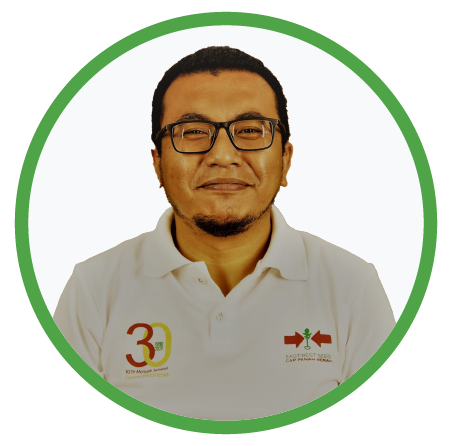
Freddy Reynaldo
Corporate Engagement, Manager, PT East West Seed, Indonesia

Mohd Nazrul Hazeri B Nazirmuddin
Co-Founder, Kapitani Sdn Bhd, Malaysia

Navin Sinnathamby
Head Of Digital AgTech,
Sectorial Projects and DroneTech, Malaysia
Digital Economy Corporation (MDEC) -
Evening Refreshments & Exhibition Hall Browsing
- 1545 - 1615
-
- 1615 - 1700
Track 3:
Acting On Nature To Win Customers’ and civil society, Support sustainable consumer LifestylesAs the world moves towards a circular food system with zero loss and waste, businesses have to lead the way in reducing food loss and waste from farm to fork, and adopt responsible marketing strategies that support sustainable consumer lifestyles.

Bryan Citrasena
Project Manager For Food, People and Nature, Indonesia Business Council for Sustainable Development (IBCSD), Indonesia

Tan Hong Tat
Head of Sustainability, AEON
Group Malaysia
Thing Siew Shuen
Senior Programe Manager,
Greenpace Southeast Asia, MalaysiaTrack 4:
Making the Extended Producer Responsibility (EPR) schemes work -A Case Study in HealthcareOne of the key transitions for WBCSD’s vision 2050 for products and materials is for the flow of waste into the environment to end and for nature to be restored. To achieve that, our waste management practices need to be transformed. With the adoption of Extended Producer Responsibility (EPR), we can help to address plastic waste through improved waste collection and increased recycling rates. One such case study is the Malaysian healthcare sector and its approach to mitigating medical plastic waste through cross-sector collaboration for upcycling.
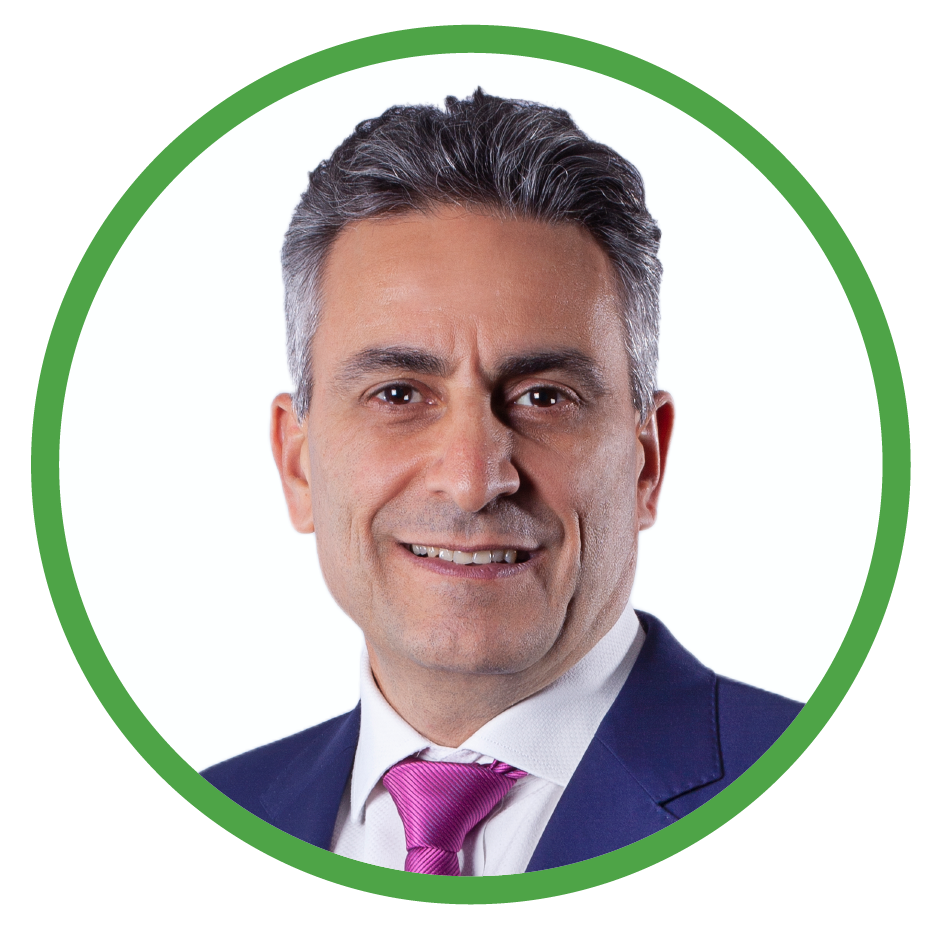
Dr George Kazzi
General Manager, Baxter Malaysia & Philipphines
Head of Commercial Excellence ISEA,
Malaysia
Dr Azrini Abdul Aziz
Nephrologist, Nephrology Department Hospital Kuala Lumpur, Malaysia

Gary William Theseira
Council Member, Climate Governance Malaysia (CGM), Malaysia.

Roberto Benetello
Executive Director, Business
Council for Sustainable Development, Malaysia -
Next Phase of ESG – Ensuring Sustainability Information is Decision Useful
- 1700 - 1730
ESG investment, sustainable investment, socially responsible investment, impact investment, moral investment and other terms are being used more or less synonymously to define the practice of incorporating ESG factors in investment decisions. These factors are of increasing interest to many institutional investors and other market players.
Speakers
-
End of Day 2 – ESG NXT 2022
- 1730
